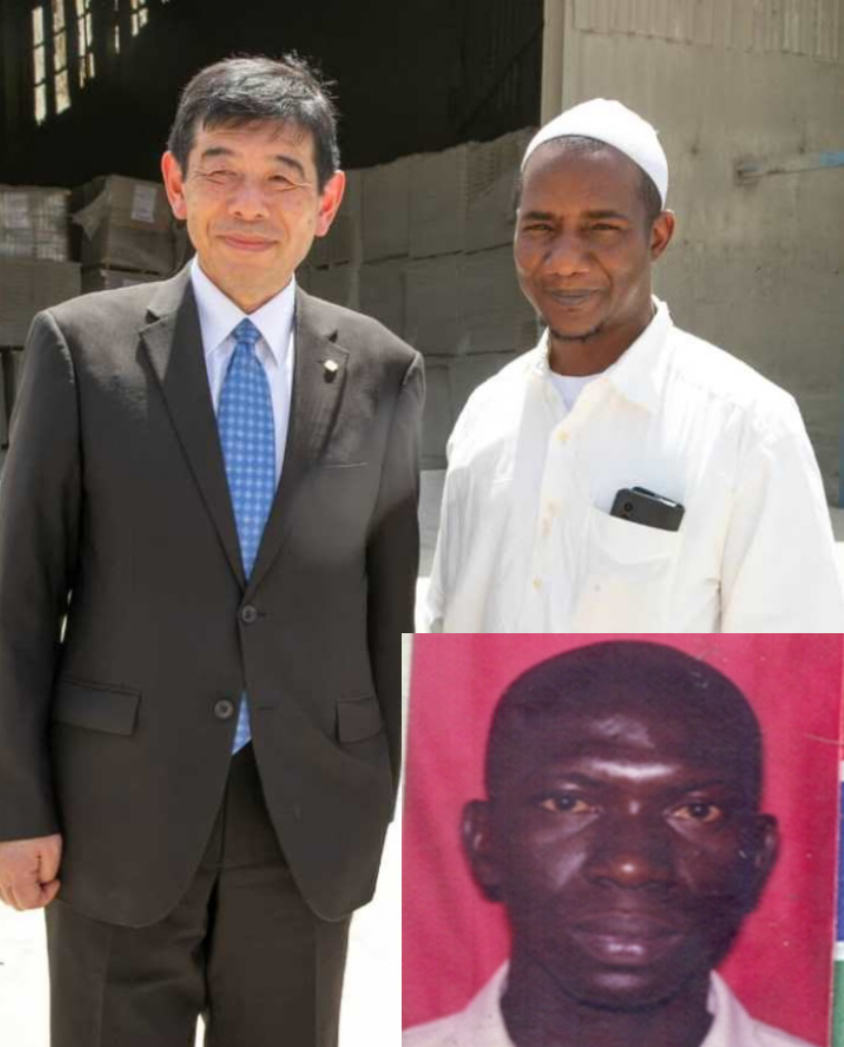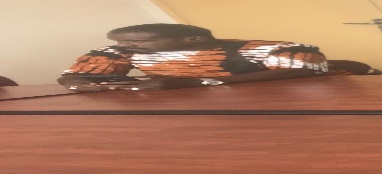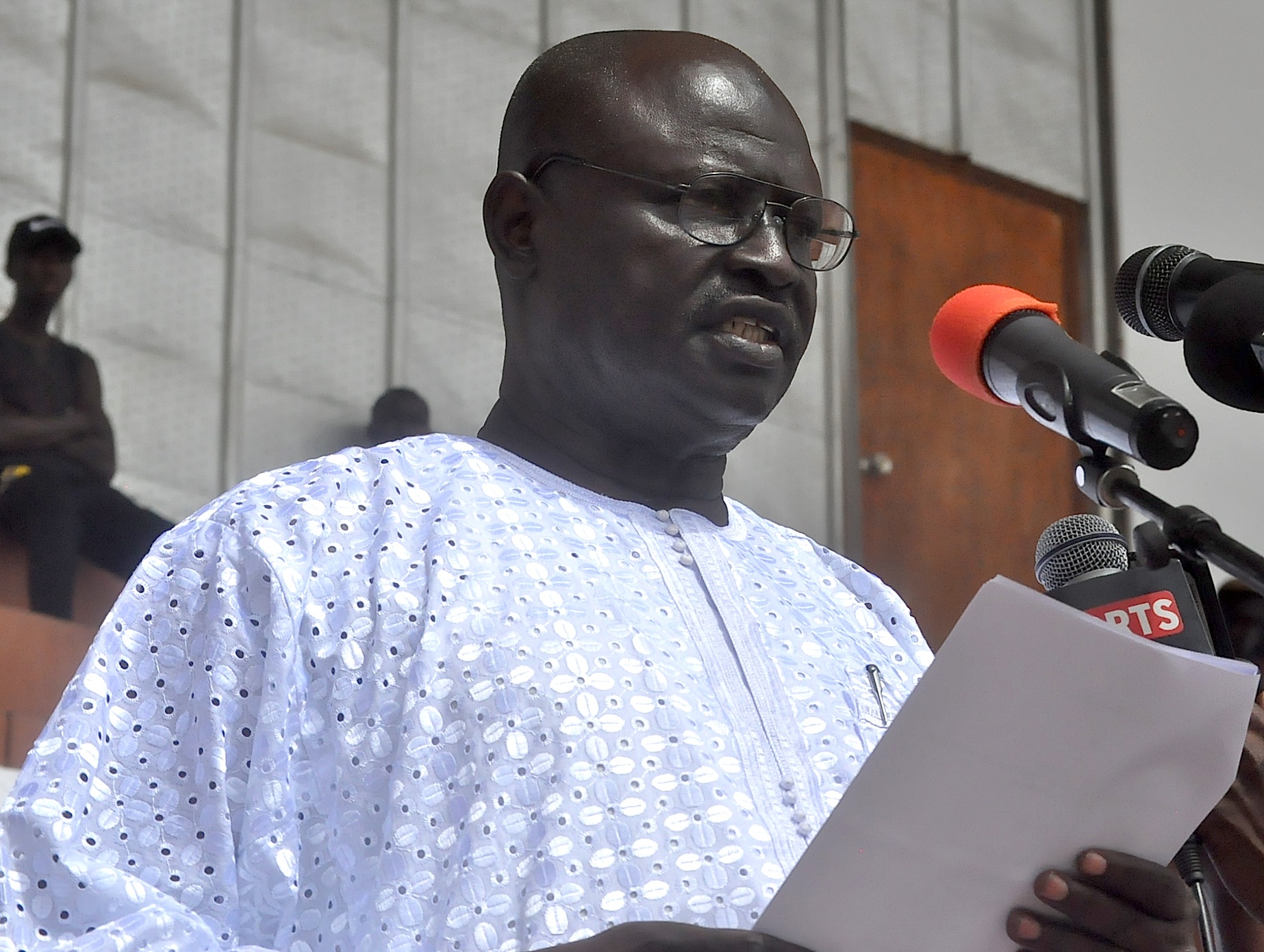Are you a CEO, MD, GM OR Business Owner, contact us on 2594043/7079257
The Managing Director of Jah Oil Company, Mr. Momodou Lamin Hydra, is our guest in this maiden edition of THE VOICE BUSINESS & FINANCEColumn. In this eye-opening interview with anchor Momodou Justice Darboe, Mr. Hydara spoke about the genesis of Jah Oil Company, the sale of substandard fuel allegations, the man behind the company, his business model and lots, lots more.
Please, read on:
The VOICE: Thank you so very much for giving us this opportunity. First off, can you please enlighten us about the genesis of Jah Oil?
JAH OIL MD: Thank you very much, Mr. Drboe. Thank you for coming. Like I said when I came to that programme [tax journalists’ seminar at Gambia College] the last time, it was very interesting to also know that there are so many journalists out there, who were surprised because they didn’t know the full details of how Jah Oil came about. Where it started and what it’s doing, especially now when some of the negativities that the company is usually hit with. If you look at it, it’s not their fight. It’s just because they’re standing there to protect or to at least try to offer better services, better values to the consumers. You know in business if you have a line of shops and they are all selling textile and you have one shop that is selling at a very low price or better than others, others don’t like him for that. They will say he’s spoiling the market. They will even go to the person and say how do you do it because we all know how we got these things and how comes you are selling at low cost. It’s the same thing in every industry. Let me come to your question. This company was incorporated way back in 2005. So, that was when it was founded by the CEO, Mr. Hamidou Jah. He started business when he was young. He was doing pots and bowls. That is kitchen wares…cooking pots, bowls, plates…things like that. That was a business from his background.

THE VOICE: So, when exactly did he start doing this kind of business?
JAH OIL MD: Like I said, at a very young age. Maybe, when he was in his teens. His early teens. He went to read Qur’an first as a child. He started his Qur’anicstudies in The Gambia and then later went to Senegal and ended in Mauritania. When he returned from Mauritania, he joined his dad in business. The father was also a very successful businessman because he owned a chain of stores. So, this is him. The old man was having chain of stores all around the provinces from Farafenni to Jarra Soma to Basse up to the Kombos. These were not just shops but were stores that he was running as a wholesaler and as a retailer. As a child, what he was tasked to do was to sell at the weekly markets or Lumos. So, that was where he started. He would take goods from the dad and go with them to these weekly lumos. So, he would be going from one weekly market to another with a minivan and then sell there. This is how he became well-known not only in URR but up to the LRR, North Bank all the way to Banjul. Sometimes, he came Banjul to get goods. So, this is how he learned business. And then as time went by, he decided to say that…you know what I got to start something different. That’s me going in without anybody’s involvement. That was when he thought about going into the petroleum business. Then, there was fuel shortage here and there. He saw an opportunity that fuel was becoming big here and we were struggling. So, he tested by buying few drums and barrels fuel and then put them in gallons and litresto sell. And then, when he started that…when you’re going into someone’s territory… It was not easy for him. There was lot of pushbacks from the people he met there. He fought for it. When he started going, he realized this is what I’m going to do. He then moved from drums and barrels to mini-tanker. He would drive it himself all the way from Basse and then drive back to Basse to put them in drums until it’s all empty. The tanker goes and then, he got a bigger pushback because by then, some thought he was coming to take over. He fought for it because he knew he was doing nothing wrong. So, he then decided to build regular petrol stations. That was when he built his first petrol station in Basse in a very, very difficult situation and a very awkward…because it was not up to standard.
THE VOICE: So, he was kind of experimenting?

JAH OIL MD: Yes, kind of experimenting. The business grew from there. So, he started to go for another one to another one to another one. All within the provinces. Then by the time he came here [coast], he was well-established. This is why when he entered Kombo…when people see him building one station after another, people could not understand because they never heard of him. They thought there was something behind the business. They don’t know that he has been doing this for years. And he started building some petrol stations. He was already established. All he wanted was to come and expand here. People saw him as a brand-new guy because they didn’t know him. By then, he was already known over there. In a nutshell, this is how the company came about.
THE VOICE: Since then, can you say he’s making progress?
JAH OIL MD: He’s making significant progressbecause of his business model. If you do business like that God will help you because he[CEO Jah] is a giver. No matter how tight he is, if he has seen the opportunity to give to anybody, he would give. When you ask, he will give and he was doing this well before he entered into the petroleum business because people, who knew him…I am one of them…when he was going to the Lumo, you go to his shop because they were having a shop by the police station…when you go there and you want to buy something but you have less, he would tell you take it. People know him for that. He is a giver. Very generous. If he knows you casually and then tells you come to my shop, if you ask about the price of something that you like, for example mattress, and then you don’t have enough of money, he would give it to you for free. He would tell you take it. So, this was how he was like at the beginning. It’s not just now that he is doing it. He started it before now. This is a guy, who will tell you, no matter, how many millions that’s supposed to go to the poor as Zakat, he must make sure it’s not less than one Dalasi. So many businessmen, when they have to take five, six, seven, eight million as a Zakat, they will tell you that’s too much but for him, he would tell you that money is not mine. It belongs to the people. This is why… and well, as a Muslim, you have wealth…this is how God instructs you to give out Zakat and it cleanses the wealth. You see so many people in our society, they become so rich but eventually become poor because they don’t give Zakat as it should be given. I am not being supertitious here but it destroys the wealth. It’s just like putting poison into a good food and you’re trying to eat all of it. You’ll definitely be eating poison.
THE VOICE: Does this generosity have anything to do with his early Islamic education?
JAH OIL MD: This is what I’m saying. It has to do with his upbringing. All that he knows is the Qura’nand Sunnah. So, this is why if you’re having conversation with him, he’ll always tell you it’s not permissible by God to take the wealth that do not belong to you. So, he is very religious. Anything that conflicts with his religion, he does not like it. So, this is why people would say this thing and that thing. And let me tell you one thing, he will give what he thinks he can give and has no regret for it. Like I said, he started giving long time ago when he was a hustler even though he was a hustler, who was blessed because he can take care of himself but out of that he said I’m going to help and he was giving and growing. One thing, he wouldn’t give is his capital. I am fortunate to see his early days. So, today when I see him doing more, I’m not surprised because I know this is his nature. It’s just that he now has more to give.
THE VOICE: You’ve given us a very good impression of Mr. Jah but why was he vilified and castigated for allegedly selling sub-standard fuel?
JAH OIL MD: Let me tell you one thing…he does notlike over profiting. He has his own business model and that’s where the clash started. For example, in this country, you will see a Jah Oil petrol station…government said the litre of petrol is D75 and it’s universal, fixed. People say…well that’s the fixed price and let me sell at that but he [Hamidou] would say let me sell at D74. He could have sold at the same price but would say let’s sell less to help the poor. So, that again didn’t go down well with so many people. Personally, I’ve been asked by people why would you discount because this is a regulated market and why are you peopling doing this. I would tell them look…somebody has his model of doing business, if he wants to earn D75, that’s his business. If he even wants to earn D70, that’s not your business. It’s his money because that doesn’t stop him from paying tax to the government. So, that’s where things started. And then when people knew about our business model, they started Jah Oil, Jah Oil. So, that was when the smear campaign started. That was when they started campaigning that if you see their fuel is cheap…don’t go there the reason they are reducing the price of their fuel is because it’s a bad fuel. You understand but when they were doing this, they knew Gambians at that time did not know how fuel system works in this country.You will realize that all the fuel imported into this country are stored at place. Everybody, who importsfuel into this country, stores it in one storage facility at Mandinary. Unfortunately, the storage facility does not have capacity. For example, you’re an importer, they would tell you this is the tank for you, anytime, you bring your fuel, put it there…we dedicate it to you and anytime you come, put it there. Another person likesthat and another person like that. They cannot segregate it because they don’t have the capacity for storage. So, what they do is…this is the tank and I bring, I put it there. You bring, you put it there, another person brings, he puts it there. The same place until when it is full, we transfer again to another tank. So,you see, all the products in this particular tank all co-mingled…what I mean, all mixed together. So, now when we send our vehicles to take some fuel, they go to this tank to fetch so do another importer from the same place. Now, I fetch from the same place and you fetch from the same place but yours is better than mine…you know that doesn’t make any sense at all. But the reason why they were peddling that because they knew at the time, Gambians did not know how the system works. You see, they played with their ignorance and made them believe what they were telling them was true. They didn’t only stop there but what they were doing…mechanics…they tell mechanics that when people come to you, tell them that that fuel… don’t go there. They [mechanics] would even recommend particular fuel stations, saying the stations had the best fuel. That’s even self-revealing. That was when we knew why they were always referring to one station. We did our investigation and later knew where the story originated.
THE VOICE: What did you do then?
JAH OIL MD: We then started to go on air to campaign to tell the public how fuel is handled in this country and people were shocked. We did our campaign and people were shocked that all the fuel is stored and fetched from one place. Some of the stations recommended by the mechanics, we sent them supplies. We sell them. Some of their supplies come from us.
THE VOICE: How did it feel to have such things said about you because it was a huge thing?
JAH OIL MD: It was bad. When we first heard about it in the beginning, we laughed about it. Reason why we laughed because we knew it’s impossible. It’s complete lie because of these scenarios I explained to you and the reason why we laughed about it is we thought people knew about how fuel is stored in this country. But as the stories intensified, we said wait a minute, this thing is getting serious and it deserved to be given a better attention. That was when we went round to sensitize the people and then, so many people confirmed that there was no segregation of fuel in this country. So, we cannot have one here and one there.
TO BE CONTINUED… Sponsor Invited





